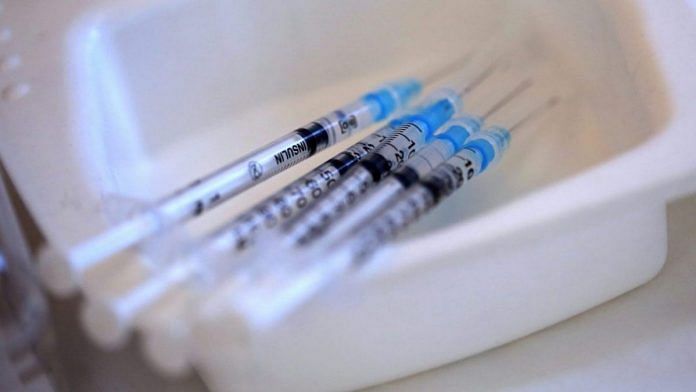Johannesburg: An interval of eight to 10 weeks between doses of the Covid-19 vaccine developed by Pfizer Inc. and BioNTech SE boosts the effectiveness of the two-shot regimen compared with a shorter interval, a U.K. study found.
“Eight weeks is probably the sweet spot,” in terms of the trade-off between getting as many people fully vaccinated as quickly as possible and allowing the population to produce higher antibody levels, professor Susanna Dunachie, the study lead from the University of Oxford, said at a briefing Thursday.
After inoculating a larger proportion of people than any other major economy, Britain has seen infections soar in recent weeks as the delta variant spreads. The pickup in cases has led to some debate over whether the government should further shorten the recommended interval between doses, recently lowered from 12 weeks to eight.
“This latest study provides further evidence that this interval results in a strong immune response and supports our decision,” U.K. Vaccines Minister Nadhim Zahawi said in a statement.
The research looked at the immune response to the Pfizer vaccine ranging from a three-week dosing interval to 10 weeks. While the shot generated a strong reaction across the timespan, the longer gap showed some advantages.
Neutralizing antibody levels were twice as high after the 10-week interval as with the three-week span, including against delta and all other variants of concern tested. The more protracted regime also improved the response of helper T cells, which support immune memory. The findings haven’t been peer-reviewed.
A drawback to the longer interval, however, was a decline in antibody levels between the first and second doses, in particular against the delta variant, the study found. T cells were well maintained between the shots.
Global studies show that both the short and long dosing schedules lead to strong real-world protection against Covid-19, emphasizing the importance of having a second dose of the vaccine, the scientists said.
The study looked at the immune response in 503 U.K. healthcare workers, about three-quarters of whom were women. It was funded by the U.K.’s Department of Health and Social Care and conducted by scientists from the universities of Oxford, Newcastle, Liverpool, Sheffield and Birmingham, with support from the U.K. Coronavirus Immunology Consortium.—Bloomberg
Also read: Mixing vaccines without evidence a ‘dangerous’ trend, WHO’s Soumya Swaminathan says



